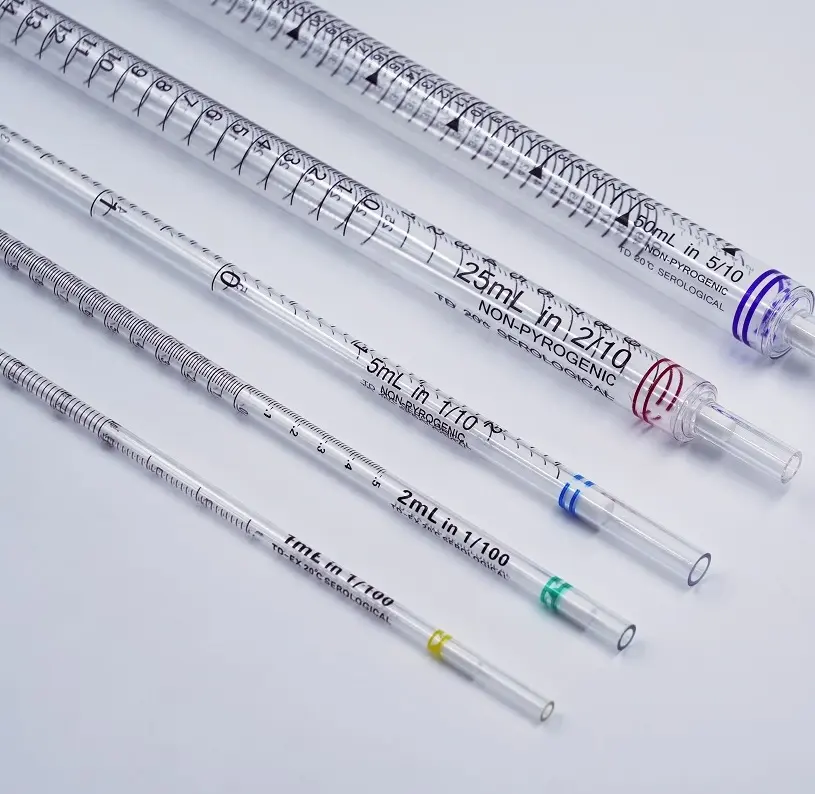With the continuous improvement and perfection of various processing techniques, polymer materials are made into various products and used in many fields. Serological pipettes are disposable laboratory consumables used to accurately measure or transfer liquids. They are generally made of polystyrene (PS). PS is a colorless and transparent thermoplastic with the following characteristics:
1. Mechanical properties: PS is a hard and brittle material with very small ductility and no yielding when stretched. The mechanical properties of polystyrene are related to the synthesis method, relative molecular mass, temperature, impurity content and testing methods.
2. Thermal properties: PS has poor heat resistance, with a heat deformation temperature of 70 to 95°C and a long-term use temperature of 60 to 80°C. Therefore, serological pipettes cannot be sterilized by high temperature and high pressure, and radiation sterilization is generally chosen. The thermal conductivity of polystyrene is low, about 0.10~0.13W/(m·K), and it basically does not change with temperature changes. It is a good thermal insulation material.
3. Electrical properties: PS is a non-polar polymer, and few fillers and additives are added during use. Therefore, it has good dielectric properties and insulation, and its dielectric properties have nothing to do with frequency.
4. Chemical properties: PS has relatively good chemical stability and can withstand various alkali, general acids, salts, mineral oil, lower alcohols and various organic acids.
The above are some characteristics of the material of the serological pipettes. The good chemical stability ensures that the solution and the tube will not react, thus ensuring the accuracy of the experiment.
please contact Whatsapp & Wechat : +86 180 8048 1709
Post time: Sep-26-2023





